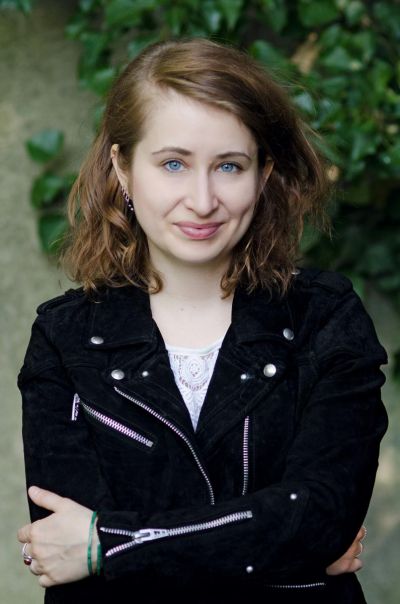Katarina Niewiedzial – a Pole in the cause of migrants

From personal experience, Katarina Niewiedzial knows what everyday life for migrants is like, including the difficulties of acclimatising to a new environment and the need to completely rebuild your life that immigration entails. She was born in Zgorzelec in 1977. In early 1990, she came to Germany, just after the Berlin Wall came down and a few months before reunification. As a twelve-year-old girl, she found it anything but easy to leave Poland behind, with her familiar environment, school, friends and acquaintances.
“I have very emotional memories of our departure from Gryfino, where we lived. I was sad to have to say goodbye to everyone. I’m often asked by journalists in Germany whether my parents discussed our emigration with me. Of course they didn’t, but I can’t bear a grudge against them. It was a decision that needed to be made by adults. And for me, moving to another country was also an exciting adventure.”
After entering Germany, the family stayed at the transit camp in Friedland near Göttingen for a short time. From there, they moved on to Bremerhaven. Katarina’s first impressions of the city, which was considerably larger than Gryfino, were depressing. A lack of knowledge of German and no social contacts made it difficult to get used to her new home. She remembers that during this period, she withdrew into her own world, although now, she thinks this could also simply be typical teenage behaviour. As she made progress learning the language, it became easier for her to open up to the possibilities that her new situation offered and to gain in self-confidence. Even so, living in places where there were a large number of people with similar life experiences, including many Poles, had its good sides. As Niewiedzial explains:
“I didn’t feel lonely. I had a group of Polish native speakers around me with whom I spent my time. That really helped when it came to meeting other people. That’s why I’m not surprised when migrants tell me today that they spend most of their time amongst ‘their own’. I can certainly understand that in a foreign country where you don’t speak the language well enough, you’re grateful for every person whom you can talk to.”
After taking her “Abitur” school leaving exam, Katarina Niewiedzial moved to Oldenburg, where she studied politics and economics at the university. She then travelled to Limerick in Ireland for a year, where she took a course in European Studies. In 2000, she moved to Berlin and continued her studies in politics at the Freie Universität. After completing her degree, she came into contact with people with a migrant background when she took on the job of project coordinator in the office of the Berlin Senate Commissioner for Integration and Migration, Andreas Germershausen. She also headed Das Progressive Zentrum, a Berlin think tank, for several years. Her career breakthrough came when she was offered the post of Commissioner for Integration at the town hall in the Berlin district of Pankow. For five years, from 2014 to 2019, she supported the people living in this multicultural area, convincing them that it is worth working together to help migrants achieve their goals, and that creating and maintaining networks is of huge importance. Former colleagues of Katarina Niewiedzial remember how she gave a far more friendly face to the office for integration, which until that time had been regarded as a soulless institution.
In May 2019, she became the Commissioner for Integration and Migration for the Berlin Senate, taking over from Andreas Germershausen, who had been her boss when she started out in her career. From the start, Katarina Niewiedzial worked to persuade people that more than anything else, migrants presented an opportunity for German society. When asked about the challenges she faces as head of this office, she says: “The labour market is quick to employ foreigners, since it is dependent on their work. Now we need to campaign to ensure that they have good working conditions and fair pay”.


